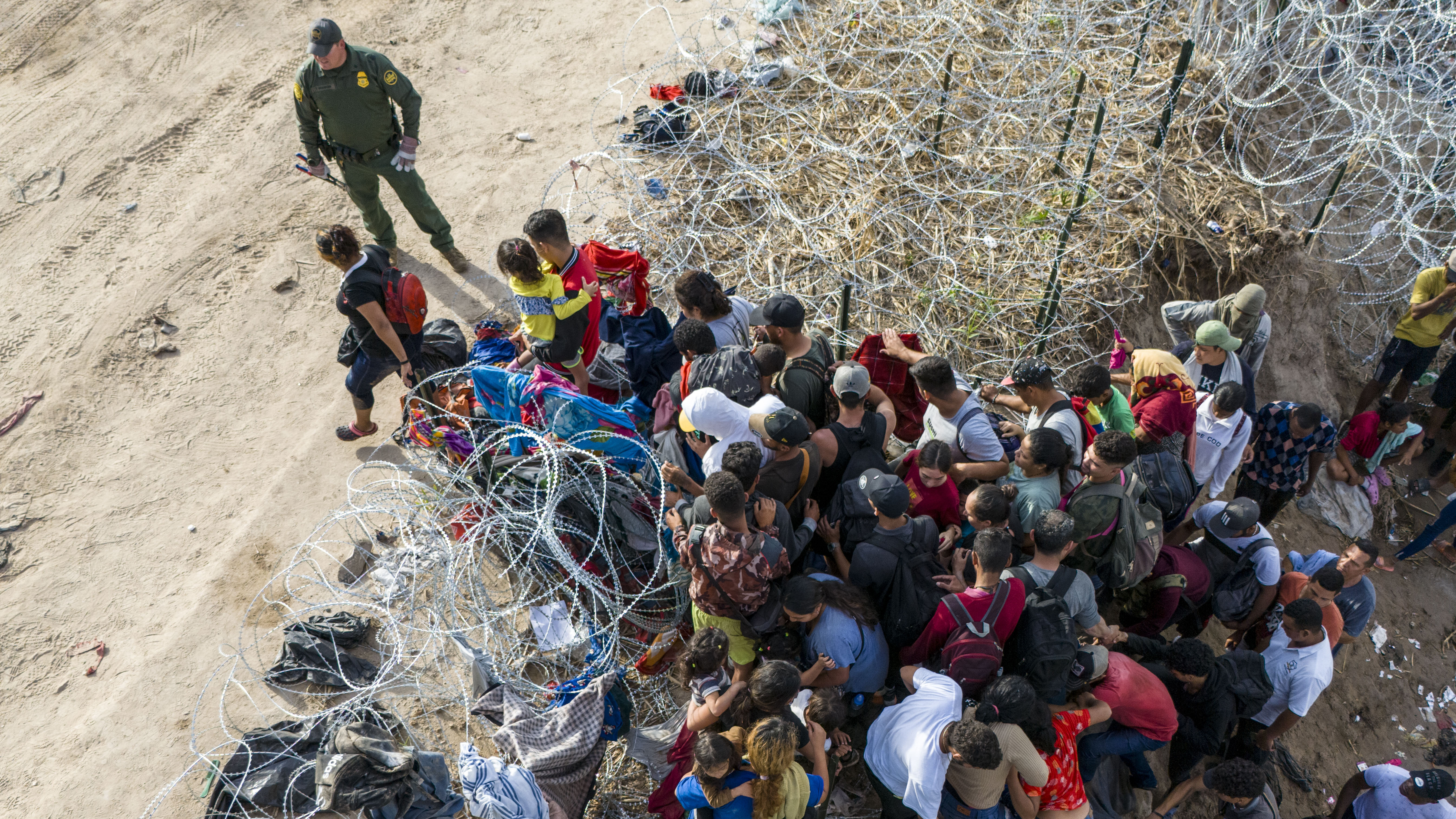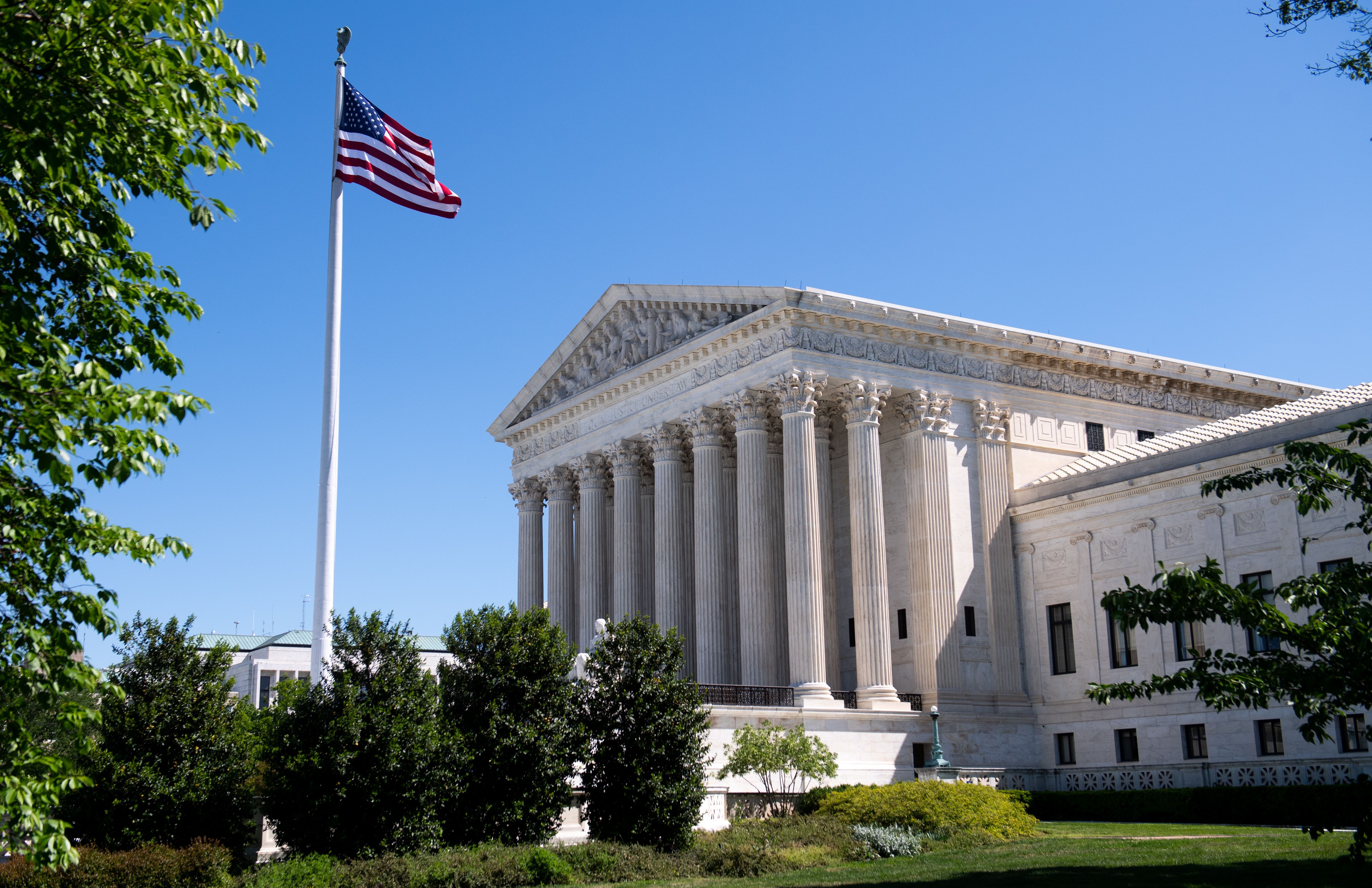Texas faced skeptical questioning at an appeals court hearing Wednesday as the state pushed to enforce a strict new immigration law that would allow it to arrest and deport people who enter the U.S. illegally.
The one-hour hearing before a three-judge panel of the 5th U.S. Circuit Court of Appeals ended without a ruling, leaving Texas’ new law on hold for now. A flurry of court activity, including a decision Tuesday from the U.S. Supreme Court that allowed the law to take effect for several hours, has caused uncertainty at the border.
Chief Judge Priscilla Richman raised a series of questions about how the state law would be carried out, including how Texas would respond if federal authorities don’t cooperate with a state judge’s order to deport someone. No arrests were reported during the hours the law was in effect Tuesday.
The U.S. Department of Homeland Security has said it would not have authority to deport under the state law.
“This is uncharted because we don’t have any cases on it,” said Texas Solicitor General Aaron Nielson.
The Justice Department has argued that Texas’ law is a clear violation of federal authority and will create chaos at the border. Lawyers for the department faced a grilling from Judge Andrew Oldham, who was appointed by Republican President Donald Trump. The third judge on the panel, Judge Irma Ramirez, did not ask questions during the hearing but has previously voted to keep the law on hold.
TEXAS SB4 IMMIGRATION LAW
Richman challenged Texas’ assertion that it is exercising a “core police power,” getting Nielsen to acknowledge that deporting people has been a federal responsibility. But Nielsen denied that Texas is “trying to take over the field” on border enforcement and said the state wants to cooperate with the federal government on what is widely acknowledged to be a crisis.
Nielsen also said he did not know how the law would affect someone who entered the country illegally but came to Texas from another state.
Regardless of how this three-judge panel rules, the legal fight will hardly be over. The 5th Circuit has been considering the state's appeal of a scathing injunction from a lower-court judge that put the law on hold.
The 5th Circuit issued a decision earlier this month that would have allowed the law to take effect, and the Supreme Court essentially declined to intervene Tuesday. But hours after the law took effect, the 5th Circuit reinstated the lower court injunction, pausing the law again.
The Supreme Court did not rule on the merits of the law. It instead kicked back to the lower appeals court a challenge led by the Justice Department.
Under Texas law, once defendants are in custody on illegal entry charges, they can agree to a judge's order to leave the U.S. or face prosecution. However, Mexico has said it would refuse to take anyone back who is ordered to cross the border.
The impact extends far beyond the Texas border. Republican legislators wrote the law so that it applies in all of the state’s 254 counties, although Steve McCraw, the director of the Texas Department of Public Safety, has said he expects it will mostly be enforced near the border.

Other GOP-led states are already looking to follow Texas’ path. In Iowa, the state House gave final approval Tuesday to a bill that would also give its state law enforcement the power to arrest people who are in the U.S. illegally and have previously been denied entry into the country.
It now goes to Republican Gov. Kim Reynolds. If signed, it would take effect in July.
“The federal government has abdicated its responsibilities and states can and must act,” Republican Iowa state Rep. Steven Holt said.
In Texas, El Paso County Judge Ricardo Samaniego, the top county executive, said immigration enforcement should remain a federal, not state, responsibility, echoing the Biden administration's view. He said heightened law enforcement presence in the city of El Paso during a previous migrant surge brought high-speed chases and traffic stops based on assumptions that passengers were in the country illegally.
“We had accidents, we had injuries, we got a little glimpse of what would happen if the state begins to control what happens in respect to immigration,” Samaniego said.
Arrests for illegal crossings fell by half in January from a record-high of 250,000 in December, with sharp declines in Texas. Arrests in the Border Patrol's Del Rio sector, the focus of Abbott's enforcement, fell 76% from December. Rio Grande Valley, the busiest corridor for illegal crossings for much of the past decade, recorded its fewest arrests since June 2020.
Tucson, Arizona, has been the busiest corridor in recent months, followed by San Diego in January, but reasons for sudden shifts are often complicated and are dictated by smuggling organizations.
When Biden visited the Rio Grande Valley for his second trip to the border as president last month, administration officials credited Mexico for heightened enforcement on that part of the border for the drop in arrests. They said conditions were more challenging for Mexican law enforcement in Sonora, the state that lies south of Arizona.



